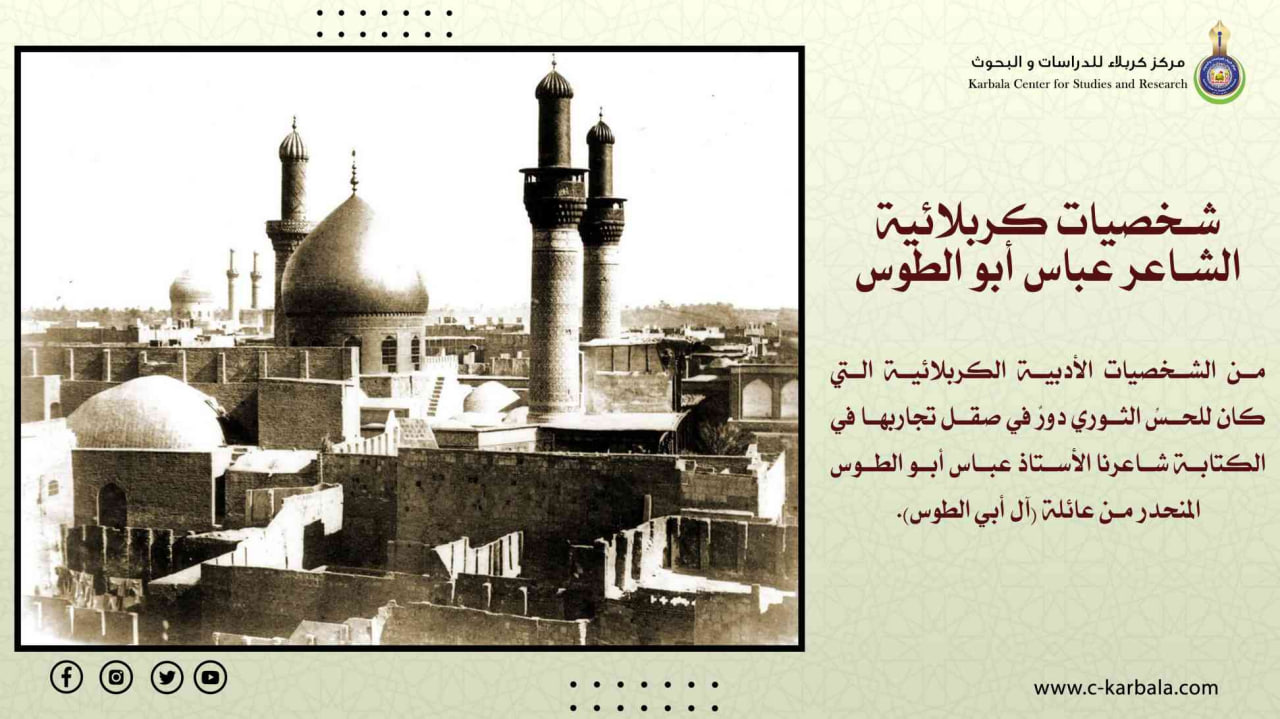Karbala characters poet Abbas Abu al-Tus
One of the Karbala literary figures whose, revolutionary sense had a role in refining his experiences in writing is our poet Sayed Abbas Abu al-Tus, who hails from the family of (Al Abi al-Tus). The poet Abbas Abu al-Tus was born in the holy city of Karbala in 1929, and grew up there in a poor and destitute family. Professor Musa Ibrahim Al-Karbasi stated in his book (Literary Houses in Karbala / 2015 edition) that the poet (Abu Al-Tus) learned to read and write about his sheikh, the popular poet Abdul Karim Al-Karbalai, until he had a passion for Reading and drawing inspiration from science and knowledge, and everything that enables him to support his experience, to have a decent and prestigious place in the literary community, especially Al-Jahiz's books and historical books, like the millennium of Ibn Malik, and some speeches of the prophet of Islam (peace be upon him). This is what made him gain a great cultural and knowledgeable balance.
As we said at the beginning that revolutionary sensibility played a role in shaping his personality, our poet was imprisoned many times for his protest stances rejecting forms of injustice and tyranny during his lifetime. Including his active participation in the October 1952 insurrection, and his revolutionary personality has appared clearly and explicitly in his poems, especially those that inspired the symbolism of Imam Hussein (peace be upon him) as an icon of rejection, and a torch that lights the way of free people seeking to say the word of truth in times of injustice and tyranny, and one of his most important poems that presents this meaning is the poem (The Immortal Hussein)
Our poet Abu al-Tus died on the twenty-seventh of December 1958 at a young age after he published his poetic and revolutionary voice in forums and seminars.

